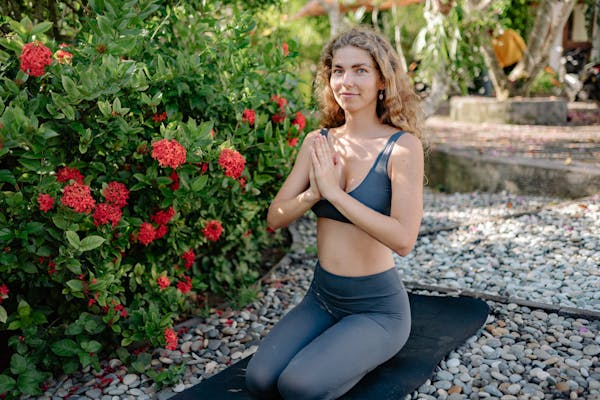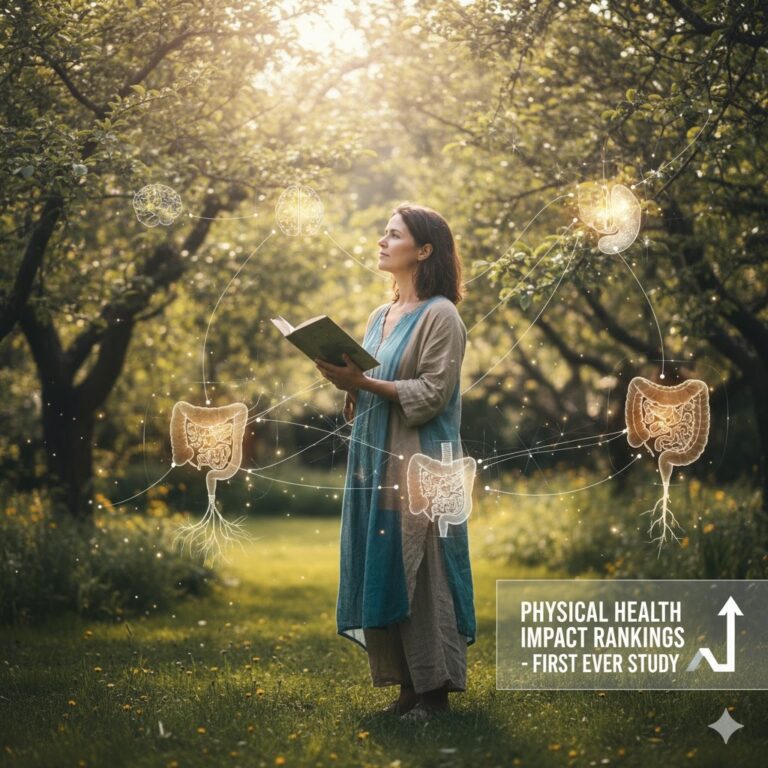The Artistry of Growing Older with Dignity
Midlife (approximately 40–65) and senior years (65+) offer special opportunities. You’ve probably earned some wisdom from experience, but possible challenges could include physical changes, shifting relationships, or wondering what to do with your life. Understanding how to maintain physical, emotional, and purposeful health during these transitions creates a pathway to confidently navigating and conquering these challenges.
Developing Physical Health to Outshine
The body is a lifelong companion, and taking care of it in midlife and beyond lays the foundation for graceful aging. Physical health is not about being perfect — it is about being enlivened and capable.
Be Active with Joyful Movement
Physical activity is considered a pillar of healthy aging. The American Heart Association advises engaging in a minimum of 150 minutes of moderate aerobic activity per week, plus at least two days of strength training weekly. But ditch the torturous workouts — pick ones you enjoy, such as brisk walks in nature, boogying to your best tunes, or yoga to maintain flexibility and balance. For example, research has demonstrated that regular movement lowers the risk of chronic maladies, like heart disease, and even elevates mood through endorphins.
Try this: Sign up for a nearby walking group, or start taking tai chi, which improves balance and reduces the risk for falls — a major concern for the elderly. Making it a habit is essential, so find what brings you joy and do it repeatedly.
Food is Fuel — For Your Body, Mind and Spirit
Your diet is critical to aging well. Emphasise whole foods—colourful fruits and vegetables, lean proteins, whole grains and heart-healthy fats like those in avocados and nuts. Studies from Harvard Medical School, for instance, describe the Mediterranean diet, which features fish, olive oil, and greens, as being associated with reduced risks of both Alzheimer’s and heart disease.
As metabolism slows, opt for calories that are in nutrient-rich foods vs calorie-rich foods. Calcium and vitamin D are essential for healthy bones, particularly in women after menopause. when their risk for osteoporosis increases. Sip smoothies loaded with spinach and berries, or feast on salmon with roasted vegetables for a dish that feeds the body and soul.
Prioritise Sleep and Recovery
For physical health, sleep is non-negotiable. Bad sleep can lead to cognitive decline and weakened immunity, according to the National Institute on Aging. Get 7–9 hours a night, establishing a winding-down routine before bed—dim lights, herbal tea, a good book. Restrict screen use before bed, as it hinders melting production.
A pro tip: If there’s joint pain or stiffness, look to low-impact recovery tools, like foam rolling or warm baths with Epsom salts, to alleviate discomfort and relax the body.
Managing Emotional Changes Gracefully
Emotional highs and lows go with the aging process. You may be feeling liberated by newfound freedom (empty nesters: rejoice!) or struggling with loss, whether it’s of loved ones, roles, or even your sense of self. Our empathy for these changes will keep us emotionally healthy.
Nurture Mindfulness and Appreciation
The midlife and senior years can ignite introspection, sometimes with a dollop of “what ifs.” Meditation or journaling is a mindfulness practice that brings you back to the present moment. Mindfulness reduces anxiety and raises life satisfaction in older adults, according to 2021 research published in Frontiers in Psychology. Try a 5-minute gratitude journal: Every day, write down three things that made you happy, be it a warm sunrise or nice words from a friend.
Foster and Preserve Relationships
Loneliness can settle in as social circles change, but solid friends are essential. The National Institute on Aging says social engagement reduces the risk of depression and cognitive decline. Chidambaram said that reconnecting with old friends, joining a book club, or volunteering at a local charity can all help in dealing with the empty nest syndrome. Even minimally engaging interactions, such as chatting with a neighbour, elevate your sense of well-being.
Story time: My friend Susan, 68, felt lonely when she retired. She became involved in a community gardening group and now refers to her fellow gardeners as her “second family.” Join your tribe—it is never too late.
Be Kind to Yourself During Transitions
Emotional resilience grows from standing at the edge of change. Perhaps your kids are grown and gone, or retirement is disorienting. Practice self-compassion by talking to yourself as you would your best friend. If you’re having a hard time, therapy or support groups can provide tools for processing complicated feelings. The American Psychological Association notes that therapy is effective for older adults, often with only a few sessions.
Discovering a New Sense of Purpose in Midlife and Beyond
Purpose is what ignites aging and makes it not just bearable but fun. It’s about how you align your days with what matters most in your life, whether it be creativity, giving back, or learning something new.
Rediscover Your Passions
Your second adulthood is an opportunity to resurrect dreams you put on the back burner. Always wanted to paint? Take an art class. Love history? Audit a college course, or take a deep dive into genealogy. Lifelong learning sharpens the brain — research from the University of California reveals that mental stimulation postpones cognitive decline.
Try this: For the month, create a “curiosity goal,” such as learning a new recipe or visiting a local museum. It’s the little strides that are rewarding.
Give Back to Your Community
Helping others often blooms into purpose. It creates a ripple effect — volunteering, mentoring , or just sharing life experiences with the younger generations. One 2020 study published in The Gerontologist showed that volunteering increased life satisfaction and decreased mortality over time in older people. From tutoring children to knitting blankets for shelters, your efforts are making a difference.
Think of Retirement as Reinvention
Retirement isn’t an endpoint — it’s a new chapter. Seek the “What’s next?” Part of the grief is about losing things (like a 9-to-5 routine). Perhaps it’s some part-time consulting, starting a blog, or traveling on a budget. My uncle, only 72, converted his woodworking hobby into a side hustle and sells custom birdhouses at local markets. His secret? To him, retirement was a canvas, not a finish line.
Tips for Ageing Gracefully Starting Right Now
Are you prepared to step into this colourful chapter? A checklist to get you started:
Physical Health: Get out for a 20-minute walk every day, find a way to work one new veggie onto your plate, and try going to bed and waking up at the same time every day.
Emotional Well-Being: Sample a five-minute meditation app (Calm or Headspace, for example), call a friend this week, and list one thing you’re grateful for each day.
Get super local: Register for a neighbourhood course or a local volunteer project, or write down three hobbies that would bring you joy to pursue.
The Joy of Ageing Gracefully
Graceful aging is living fully each moment, with a body that feels strong, an open heart, and a purpose that sets you on fire. Either way, midlife and senior years aren’t about slowing down; they’re about savouring the richness of life. By taking care of your physical body, allowing peaks and valleys of emotion when necessary, and pursuing the things that light you up, you’ll not just age; you will flourish.
So here’s to you — whether you’re 50 or 80, may you embrace this season with courage, joy, and a spirit of adventure. What’s a step you’ll take today toward aging gracefully? Tell us in the comments —we’re in this together!







